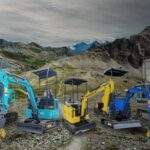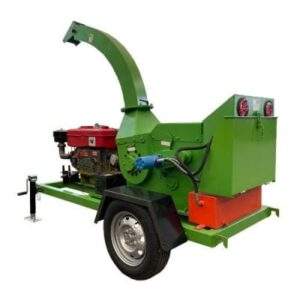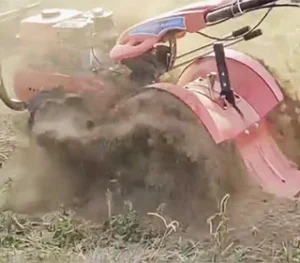Digging Deeper: A Comprehensive Overview of Mini Excavators
Introduction
Mini excavators have become an indispensable part of the construction and landscaping industries due to their compact size, versatility, and efficiency. These machines are designed to perform a wide range of tasks in tight spaces where larger excavators cannot operate effectively. As the demand for urban development and precision construction grows, the role of mini excavators becomes increasingly significant. This blog post aims to provide a comprehensive overview of mini excavators, exploring their features, applications, and benefits, as well as addressing some frequently asked questions.
Key Features of Mini Excavators

Mini excavators are engineered to offer maximum functionality in a compact form factor. Here are some of the key features that make these machines stand out:
- Compact Size: With a small footprint, mini excavators can easily fit through standard doorways and navigate tight spaces, making them ideal for indoor and urban construction projects.
- Versatile Attachments: These machines can be equipped with a variety of attachments, such as buckets, hammers, and augers, allowing them to perform a multitude of tasks beyond digging.
- Ease of Operation: Many mini excavators come with user-friendly controls and features like zero-tail swing and adjustable arm positions, making them easy to operate even for novice users.
- Fuel Efficiency: Due to their smaller size, mini excavators typically consume less fuel than their larger counterparts, leading to lower operational costs.
- Low Ground Pressure: The design of mini excavators often includes wider tracks, which distribute the machine’s weight more evenly, resulting in lower ground pressure and reduced potential for damage to lawns or landscaping.
Application of small excavator
| Application | Description | Benefits |
|---|---|---|
| Demolition | Breaking down small structures and removing debris | Precise control reduces damage to surrounding areas |
| Landscaping | Digging trenches, planting, and grading soil | Compact size allows access to narrow garden spaces |
| Utility Work | Trenching for cable laying and pipe installations | Minimizes disruption to the surrounding environment |
| Construction | Foundation work and excavation for small buildings | Enhances safety and efficiency on construction sites |
| Road Maintenance | Repairing potholes and utility trenches | Quick and efficient, with minimal traffic disruption |
This table outlines some of the most common applications of mini excavators. Their compact size and versatility make them suitable for a wide range of tasks, from construction and demolition to landscaping and utility work.
Advantages of using a mini excavator

Increased Productivity
Small excavators can increase job site productivity by working in areas that larger machines cannot reach. This can complete tasks faster and increase overall project efficiency.
Enhanced Precision
The compact size and precise control of mini excavators enable operators to work with greater accuracy, reducing the risk of errors and the potential for damage to property or infrastructure.This level of precision also allows for more efficient use of materials and resources, ultimately leading to cost savings for the operator. Additionally, mini excavators are versatile machines that can be used in a variety of applications, making them a valuable asset for construction projects of all sizes.
Reduced Costs
Operating a mini excavator typically involves lower fuel consumption and maintenance costs compared to larger machines. Additionally, the reduced need for manual labor and the ability to complete tasks more quickly can lead to significant cost savings.
Improved Safety
The design of mini excavators, including features like zero-tail swing and low ground pressure, contributes to improved safety on the job site. These machines are less likely to cause accidents or damage, leading to a safer working environment.
Environmental Benefits
The lower fuel consumption and reduced ground disturbance associated with mini excavators contribute to a smaller environmental footprint. This is particularly important in urban areas where construction projects must be mindful of their impact on the surrounding community and natural environment.
Conclusion
Mini excavators have proven to be a valuable asset in the construction and landscaping industries due to their compact size, versatility, and efficiency. Their ability to perform a wide range of tasks in tight spaces and under challenging conditions makes them an essential tool for many projects. By understanding the key features, applications, and benefits of mini excavators, contractors and site managers can make informed decisions about incorporating these machines into their operations, leading to increased productivity, enhanced precision, reduced costs, improved safety, and a smaller environmental impact. As the demand for efficient and sustainable construction methods continues to grow, the role of mini excavators is expected to expand, offering even more opportunities for innovation and progress in the industry.
FAQ
What are the key differences between mini excavators and larger excavators?
Mini excavators are smaller and lighter than their larger counterparts, making them more maneuverable and suitable for working in tight spaces. They typically have less digging depth and reach but offer comparable power and versatility for smaller-scale projects.
What are the primary advantages of using mini excavators over traditional excavation methods?
Mini excavators offer increased efficiency, reduced labor costs, and enhanced precision compared to manual digging or larger equipment. Their compact size allows them to access confined areas and perform tasks with minimal disruption to surrounding structures or landscapes.
Can mini excavators be used for landscaping projects?
Yes, mini excavators are commonly used for landscaping tasks such as digging trenches for irrigation systems, grading terrain, and removing stumps or rocks. Their versatility and ability to maneuver in tight spaces make them valuable tools for shaping and preparing outdoor spaces.
How do I determine the appropriate size of mini excavator for my project?
Factors to consider when selecting a mini excavator size include the size and scope of the project, the type of materials to be excavated, and the accessibility of the job site. Consulting with equipment experts or manufacturers can help assess your specific needs and recommend the most suitable size.
What safety precautions should be taken when operating a mini excavator?
Operators should receive proper training on the safe operation of mini excavators, including familiarization with controls, pre-operation inspections, and proper use of personal protective equipment (PPE). Additionally, following manufacturer guidelines and adhering to job site safety protocols is essential to prevent accidents and injuries.
Can mini excavators be transported easily to different job sites?
Yes, mini excavators are designed for easy transportability, with features such as retractable tracks or foldable structures to reduce overall dimensions. They can typically be transported on trailers or trucks without the need for special permits, making them convenient for moving between job sites.



